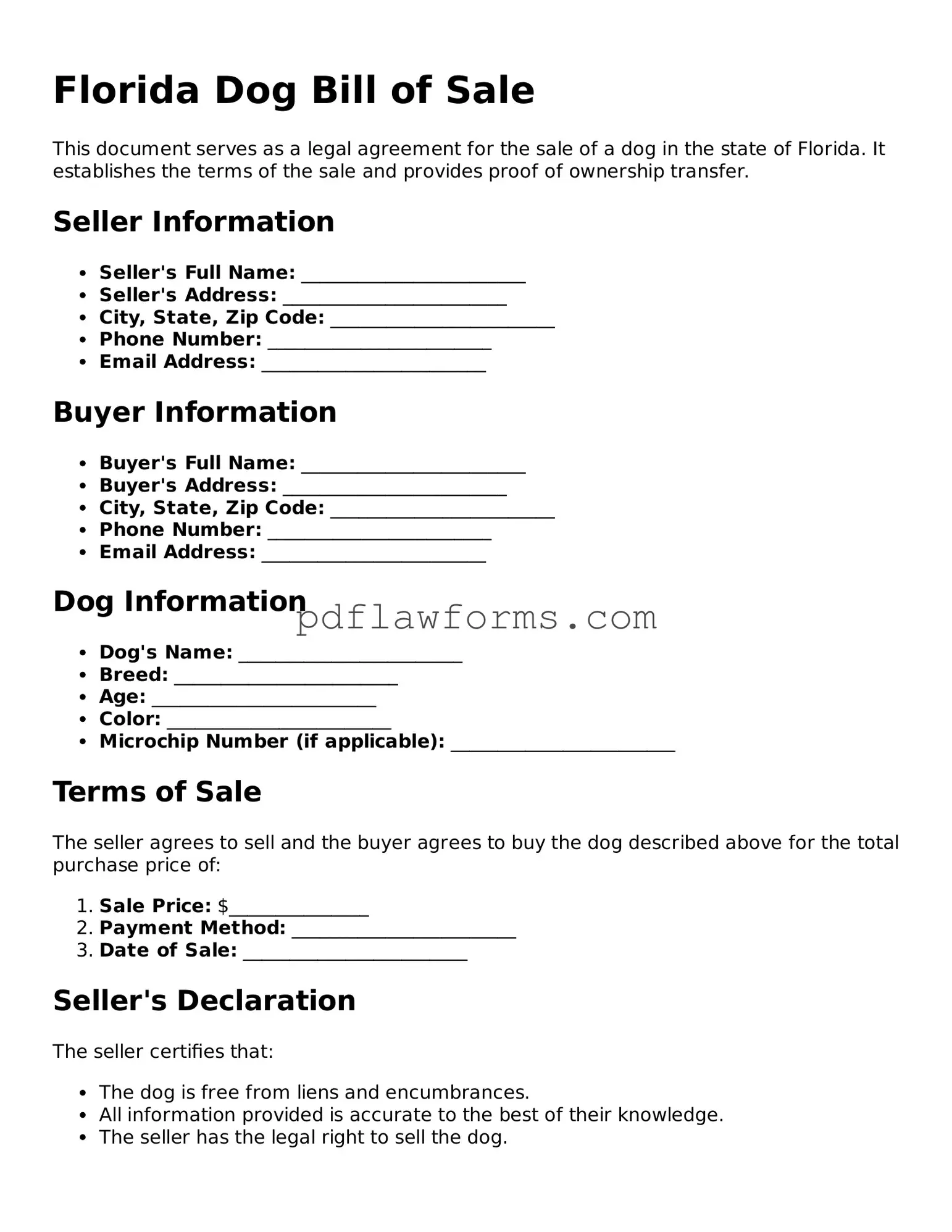Filling out the Florida Dog Bill of Sale form can seem straightforward, but many people make common mistakes that can lead to complications. One frequent error is failing to provide complete information about the dog. This includes the dog's breed, age, and any identifying features like a microchip number. Omitting these details can create confusion regarding ownership.
Another mistake is neglecting to include the seller's and buyer's contact information. It's essential to provide accurate names, addresses, and phone numbers. Without this information, it may be difficult to reach either party in the future if issues arise.
Some individuals forget to specify the sale price. This detail is crucial, as it indicates the transaction's legitimacy and may be necessary for tax purposes. Leaving this field blank can lead to misunderstandings or disputes later on.
People often overlook the importance of signatures. Both the seller and the buyer must sign the document to validate the sale. Failing to do so can render the bill of sale ineffective, leading to potential legal challenges.
In addition, not dating the form is a common oversight. Including the date of the transaction is important for record-keeping and can affect the timeline of ownership transfer.
Some may mistakenly assume that a verbal agreement suffices, but this is not the case. A written bill of sale is necessary to protect both parties' interests. Relying solely on a handshake or verbal promise can lead to disputes.
Another issue arises when individuals do not keep a copy of the completed bill of sale. It's advisable for both the seller and buyer to retain a copy for their records. This can serve as proof of the transaction in the future.
People sometimes fail to check for any local regulations regarding dog sales. Each county may have specific rules, and being unaware of these can lead to fines or legal troubles.
Additionally, some individuals may not provide a health guarantee or vaccination records if applicable. This information is vital for the buyer to understand the dog's health status and any responsibilities they may have.
Lastly, not consulting with a professional when unsure about the process can lead to mistakes. Seeking guidance can help ensure that the bill of sale is filled out correctly and legally binding.

